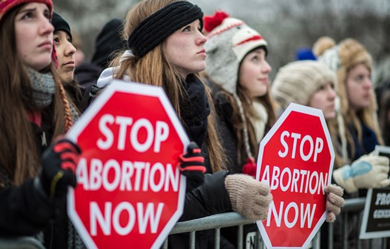Conservative activists who are pushing for the state and federal defunding of Planned Parenthood’s health services to low-income women frequently claim that community health care clinics can easily pick up the slack if Planned Parenthood’s services are no longer available to millions of women.
A map of community clinics compiled by the Alliance Defending Freedom and the Susan B. Anthony List has been making the rounds in conservative social media and has been shared by groups who claim that these health centers’ ubiquity makes Planned Parenthood unnecessary.
A story in the New York Times today highlights just one example of why that is very wrong. Louisiana, the Times’ Jackie Calmes reports, is facing a crisis of sexually transmitted diseases and the state’s two Planned Parenthood clinics, neither of which performs abortions, have been at the forefront of fighting it, including conducting nearly 20,000 STI tests last year.
Dr. Stephanie Taylor, who runs a private health center in New Orleans, told Calmes, “You can’t just cut Planned Parenthood off one day and expect everyone across the city to absorb the patients.”
The author of a recent study of community health services told the Times that it is “absurd” to claim that Planned Parenthood’s services could be easily replaced:
“Somebody says, ‘Oh, we’ll just move $500 million over.’ First of all, most of that is Medicaid, so you can’t just move it over,” said Sara Rosenbaum, a professor at George Washington University’s School of Public Health and Health Services, which recently released results of a three-year study of community health services and family planning nationwide.
She called it “an absurd claim” that other health providers could replace Planned Parenthood, especially in the South and the Midwest. With the Affordable Care Act, Ms. Rosenbaum said, health centers “have been just overwhelmed with patients because of the expansion of insurance coverage.”
That experience was borne out in Texas after it cut off funds for Planned Parenthood, when rather than transferring to another provider, tens of thousands of women simply slipped through the cracks. Jill Filopovic summarized Texas’ experience:
We know what happens when you defund Planned Parenthood, because we’ve seen it in Texas. The result? More than half of women now experience at least one barrier to reproductive health care in that state. Some 30,000 Texas women vanished from the ranks of those receiving government-funded family planning services. Planned Parenthood clinics shuttered, and the largest drops in the number of Texas women receiving state family planning services occurred in the same places where those clinics closed down. Health care providers in the state made 63,581 fewer claims for birth control than they did when Planned Parenthood was a provider receiving state funds. Without access to contraception and with limited access to safe abortion, some of the state’s poorest women are even turning to illegal and unsafe abortion methods when they get pregnant.
In other words, cutting funding from Planned Parenthood doesn’t mean that women will simply go to other clinics. It means tens of thousands will lose their health care provider.
Republican Sen. Susan Collins of Maine acknowledged this problem before a Senate vote on Planned Parenthood funding in July (Collins ended up voting to advance a defunding bill, claiming that her vote was merely a procedural move):
“The problem is, in my state and many others, Planned Parenthood is the primary provider of women’s health services in certain parts of my state, and as I understand the amendment, and again I’m still reviewing it, it immediately defunds Planned Parenthood,” Collins said. “So I don’t know how you would ensure that all of the patients of Planned Parenthood could be absorbed by alternative care providers.”
As Peter has noted, Planned Parenthood critics also sometimes claim that so-called crisis pregnancy centers, which are meant to steer women away from abortion, could pick up some of Planned Parenthood’s work. What they usually don’t say is that such centers often refuse to supply contraception.






